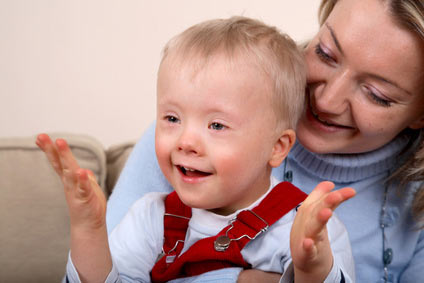Down Syndrome and Sleep Apnea
The link between down's syndrome and sleep apnea

A person with down syndrome has upper airway abnormalities that place him at risk for sleep disordered breathing, including sleep apnea.
These airway abnormalities are:
- small mid face, with low-set cheekbones
- broad skull
- small jaw
- small larynx
- narrow nasal passages
- narrow palate
- large tongue compared to the size of the mouth
- narrow throat
- enlarged tonsils and adenoids.
Unfortunately, all these physical issues predispose the person with down's syndrome to obstructive apnea and obesity.
A life with Down's Syndrome
There are many stories about this syndrome, and I choose one that I feel is more representative, to show you what it means to live with Down:
Why Down's Syndrome is Linked to Sleep Apnea?
Down's syndrome is the most common genetic disorder associated with craniofacial abnormalities. This disorder is caused, in most cases, by an extra chromosome at the 21 position.
If you are a woman, pay attention to what age do you plan a baby. Why? Because incidence of this syndrome increases with advanced maternal age.
The side effects of Down's Syndrome
It looks like everything is against breathing normally for this type of person, which is truly unfortunate.
All the characteristic symptoms for Down's syndrome (small head or nose, a short neck, an enlarged tongue) increases the risk for developing obstructive sleep apnea.
In addition to sleep apnea, patients may present mental handicaps, central apnea symptoms, hypoventilation and hypoxemia.
People with Down's syndrome also have general floppiness of the muscles and tend to be less active. So, they put on weight very easily, which can predispose them to weight gain and breathing problems at night.
Treatment
Unfortunately, Down's syndrome is not a condition that can be cured. But there are some treatments that may help many people with Down's syndrome live with a better quality of life. Here are the most common treatments:
People who live with downs syndrome babies or adults, often accept their abnormal sleep patterns and do little about it. However, this can result in long-term harm to this persons health.
So if you witness abnormal behavior during his/her sleep, it's important to speak with the doctor or specialist in the care of the person with Down's syndrome.
Home › Causes of Sleep Apnea › Down Syndrome







